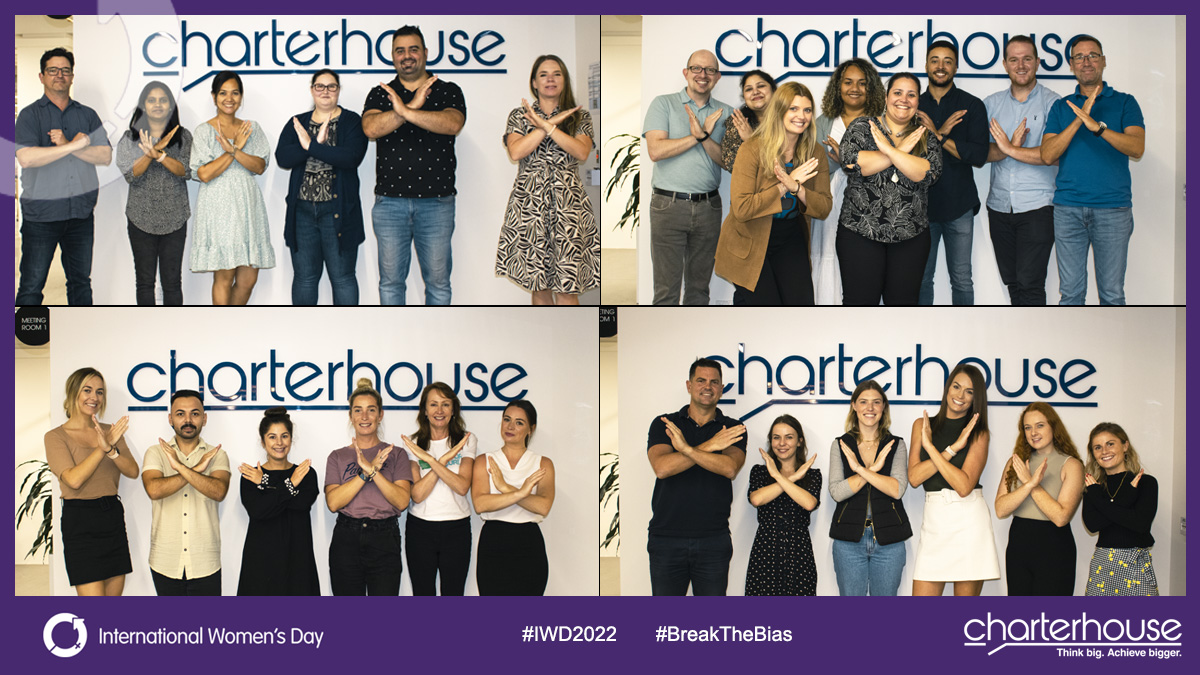International Women’s Day is devoted to the promotion of and the discussion around gender parity. Each year I lament the time when this day is no longer required; where parity exists, and bias does not: without question. That day will come, and it will come through the continued raising of awareness around bias and gender disparity, and the ensuing conversations that follow. It will come through continuing to highlight and celebrate the successes of women in the workplace, recognizing their invaluable contributions through the work they do; and finally, it will come through calling out inequality where we see it. It also requires the constant re-evaluation and critiquing of established patterns, behaviour, processes, and methods to ensure they work for everybody and not the few.
Last year I wrote about the women in my life both personally and professionally who have impacted my life either through influencing my upbringing, or influencing my career through watching, listening and looking up to them as role models. I wrote about the women I get to work with each day, and I wrote about what they do and how they materially contribute to make our business what it is; both quantitively and qualitatively whilst at the same time being a committed partner and/or parent, fully present in those moments.
This year as I put “pen to paper” I find myself shifting my gaze to look through the lens of this year's focus: #BreakTheBias. I am reflecting internally within our organisation about how we do this; and I am thinking more broadly, about how the industry we operate in can do its part to help #BreakTheBias.

I was writing some notes for this and I came across a newly published article in the Harvard Business Review titled “How Bias Against Women Persists In Female-Dominated Workplaces". The crux of this article is that gender parity doesn’t imply the absence of bias. There is a misconception that by simply hiring more women or promoting more women in an “add women and stir” approach; an organisation will achieve gender parity offering equal working conditions for women as well as men. The reality is this alone doesn’t promote change. The article goes on to labour that the change occurs within an organisation through its systems, structures, and processes with a focus on ensuring that such systems don’t favour men over women but rather equally.
As an employer, I believe we have an obligation to consciously and consistently be reviewing the gender balance across our employees.I believe that we should be reviewing promotions from both the viewpoint of gender mix but also the criteria for those promotions. We should be looking for red flags that suggest our processes and methods are flawed with an open willingness to review and change them if we see them. I believe we should be regularly pulse checking our hiring practices with the purpose being to explicitly look at whether the process itself applies bias, however unconsciously.I believe that the pathways to progression for all our employees should be clearly communicated, clearly understood by all and visible and I believe the measures and gauges we use to determine promotions should be consistent and achievable regardless of gender or parental status. This belief has been instilled in our business; in to codified methods and processes that I genuinely believe have led to us having not just one of the most gender balanced businesses we’ve ever had, but one where these same processes present legitimate equal opportunity regardless of gender.
The message isn’t that “we’re perfect” or that “we’ve done it”; but rather we’re doing it today. I need to make sure we continue to pay close attention to this, so that we may continue to move forwards, progressing further and be better.
Thinking beyond the confines of our organisation and instead looking further afield in terms of our ability to influence a broader audience. The Recruitment Industry, I believe, has a highly influential role to play in terms of working with candidates and clients to not just bring gender balance to organisations through our shortlisting processes, but to advocate for the discussion in and around systemic, cultural, and organisational processes that can cause bias and eliminate bias.
Next year Charterhouse celebrates its 20-year anniversary, and as the CEO of our business here in Australia and the UK I have a privileged opportunity to channel this depth of experience, and all of the accumulated wealth of knowledge back to our customers and share what we see organisations doing in their journey to reduce bias; in the hope that this helps some of our customers on their own journey to do the same.
Last year I concluded by saying that “I recognise that I have this privileged opportunity to help influence this because as a CEO I have the ability to achieve this here at Charterhouse; as a Recruiter I have the opportunity to work with, influence and counsel our clients to help them achieve this also”.This is my responsibility, and a responsibility I will act upon as part of my commitment to helping #BreakThe Bias.
Jason Darbyshire
CEO – Australia & UK









